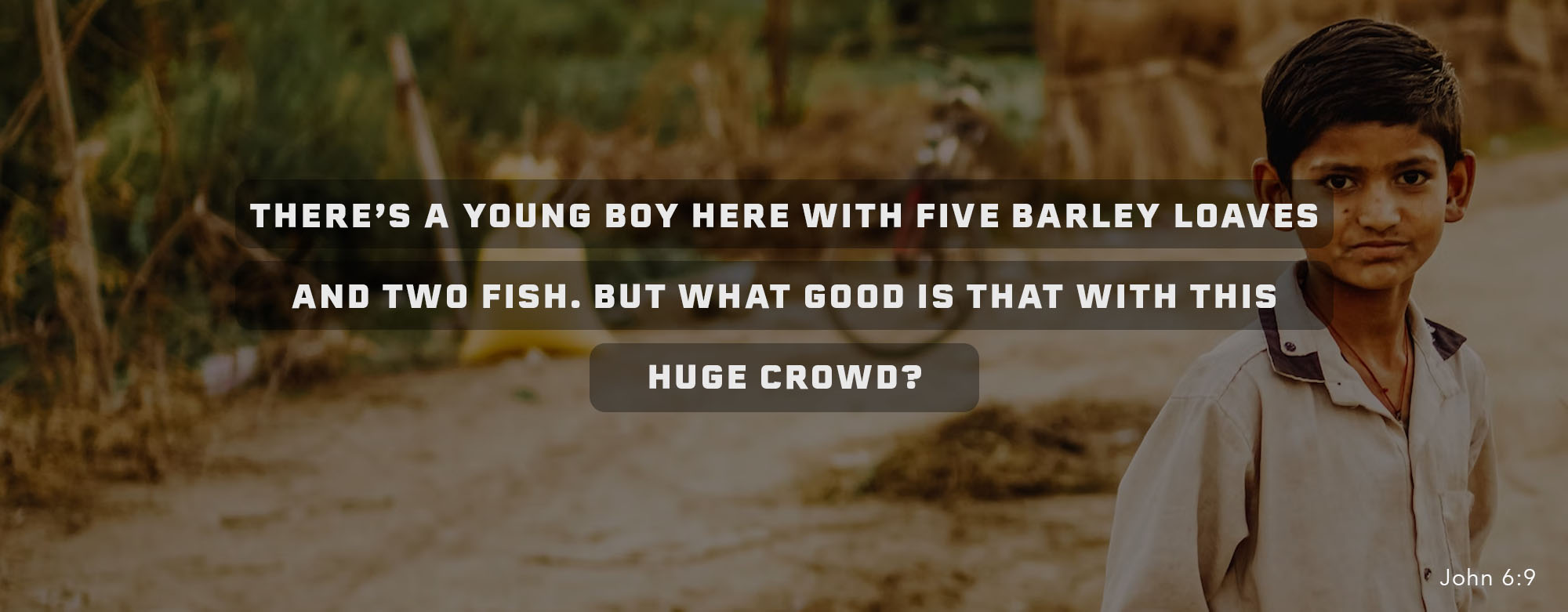

Entering a new chapter can be daunting, even crippling, as we consider all of the obstacles that must be overcome. There will undoubtedly be many questions, challenges, and opportunities as West Baptist enters a period of transition. As we continued our Good News series through Mark’s gospel, I became aware that we were getting closer to the well-known story of the feeding of the (at least) five thousand (Matthew 14:13-21; Mark 6:30-44; Luke 9:10-17; John 6:1-15). I’m sure you’ve heard the story countless times. It’s easy to picture a crowd of hungry people who became so engrossed in following and listening to Jesus that they completely lost track of time. You can imagine Jesus’ disciple Philip’s face when Jesus asked, “Where can we buy bread to feed all these people?” It was simply impossible for Philip. “Even if we worked for months, we wouldn’t have enough money to feed them!” he replied.
There are some sentence starters that give away a person’s sense of hopelessness right away, and “Even if” is probably one of the most common. I can’t tell you how many times I’ve heard the phrase “Even if” and realised this is going to be a difficult conversation. Many people in today’s self-help world believe that our solutions to such challenges are only a Google search away, such as “9 things to do if you feel hopeless.” Common suggestions include ‘consider that your brain might be lying to you’ and ‘argue the opposite.’ I’m curious how these would have aided Philip when he was given a task by Jesus.
While Philip was perhaps arguing the opposite with himself, Andrew chimed in on the conversation: “There’s a young boy here with five barley loaves and two fish. But what good is that with this huge crowd?” Rather, than offering a solution to the dilemma, Andrew merely highlighted the depth of the challenge, don’t you just love it when someone states the obvious!
Andrew and Philip would have been saying aloud what the majority of the audience was thinking: the little boy didn’t matter because what he had was insignificant in comparison to what Jesus was asking of them. And yet, as is so often the case when God is involved, what the boy had was not only a provision of the moment, but it was also the basis of one of the top ten favourite bible stories of all time. The story of the five thousand has stood the test of time because it promises us that we will never know how much God will use the little we have to offer. But we do know that it is far greater than we can ever imagine.
As the little boy’s lunch was distributed among the thousands of people with extra food, he may not have realised the long-term implications of his gift. What if the boy hadn’t shared or kept what he had to himself? What if Jesus’ disciples dismissed his instructions as unrealistic, if not impossible? What would we have done in that situation? Thank God the boy came forward and shared what little he had, amazingly his gift continues to feed people today as they are pointed to the eternal source of Spiritual food that satisfies our soul.
When Jesus sent out his disciples, he told them, “The harvest is great, but the workers are few. So pray to the Lord who is in charge of the harvest; ask him to send more workers into his fields.” (Luke 10:1-3)
Jesus recognises that we will feel depleted and ill-equipped at times, but he promises that if we pray to him, who is in charge of the Harvest, he will provide. This is clearly illustrated by the feeding of the five thousand and countless stories of supernatural abundance since then. “Now go!” he said at the end of his instructions. He did not say “wait until we are certain we have enough workers,” but rather “to go.” This is how the apostle Paul describes it:
‘Pressing towards the goal for the prize of the heavenly call of God in Christ Jesus’ (Philippians 3:14)
Links
Dunfermline West Baptist Church
Chalmers Street, Dunfermline
KY12 8DG